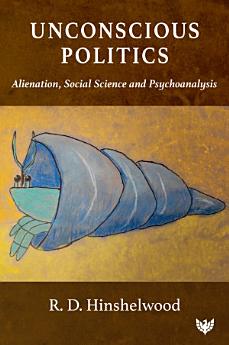Unconscious Politics: Alienation, Social Science and Psychoanalysis
Set 2024 · Karnac Books
E-book
286
Mga Page
family_home
Kwalipikado
info
reportHindi na-verify ang mga rating at review Matuto Pa
Tungkol sa ebook na ito
The social sciences and psychology see the origins of human experience from opposite directions: the inner world of the individual vs demands by society to conform. Politicians tend to follow the ideas of the social scientists and mostly ignore unconscious factors. Psychoanalysts, on the other hand, tend to focus on the human unconscious and mostly ignore the complexities of society, economics, and history. Yet, both disciplines are rooted in humanity. Social forces impact on individuals; and society is but the creation of individuals themselves. Thus, factors from both sources have validity and must impact on each other. Hinshelwood has turned to psychoanalysis as the subjective science, to balance the attempted objectivity of social sciences. The creation of a psychosocial model to bring the sparring disciplines together has been attempted many times on a conceptual level but Hinshelwood starts with a singularly interesting convergence at the level of observation. At a time where we face the imminent collapse of human civilisation, and possible extinction of the human species, it is important we attempt to understand the processes that have led us here. We need to find out where the forces of society and the imperatives of our individual selves converge in these particular threats. In order to regenerate some real optimism for our future, we need psychoanalysis to investigate the unconscious dynamics in where we went wrong. A predominant theme identified by Hinshelwood is the gradual, long-term dehumanisation of humans, which has led to widespread alienation from both society and the self. This takes place alongside the convergence of the value of money with the value of a person. Hinshelwood's use of the psychoanalytic theory of the unconscious mind to investigate humanity, society, and capitalism brings fresh insight to the intractable fractures we see in our social systems worldwide and hope for change.
Tungkol sa may-akda
R. D. Hinshelwood is professor emeritus at the University of Essex, and previously clinical director at the Cassel Hospital, London. He is a fellow of the British Psychoanalytical Society, and a fellow of the Royal College of Psychiatrists. He authored A Dictionary of Kleinian Thought in 1989, and Clinical Klein in 1994. A long-time advocate of alternative psychiatry, he was a founding member of The Association of Therapeutic Communities in 1974; and in 1980 he founded, with colleagues, The International Journal of Therapeutic Communities. He was involved in the Psychoanalysis and Public Sphere conferences in the 1980s and 1990s, and he has contributed each year to the Psychoanalysis and Political Mind Seminars. He has been a member of the Labour Party for fifty years.
I-rate ang e-book na ito
Ipalaam sa amin ang iyong opinyon.
Impormasyon sa pagbabasa
Mga smartphone at tablet
I-install ang Google Play Books app para sa Android at iPad/iPhone. Awtomatiko itong nagsi-sync sa account mo at nagbibigay-daan sa iyong magbasa online o offline nasaan ka man.
Mga laptop at computer
Maaari kang makinig sa mga audiobook na binili sa Google Play gamit ang web browser ng iyong computer.
Mga eReader at iba pang mga device
Para magbasa tungkol sa mga e-ink device gaya ng mga Kobo eReader, kakailanganin mong mag-download ng file at ilipat ito sa iyong device. Sundin ang mga detalyadong tagubilin sa Help Center para mailipat ang mga file sa mga sinusuportahang eReader.








